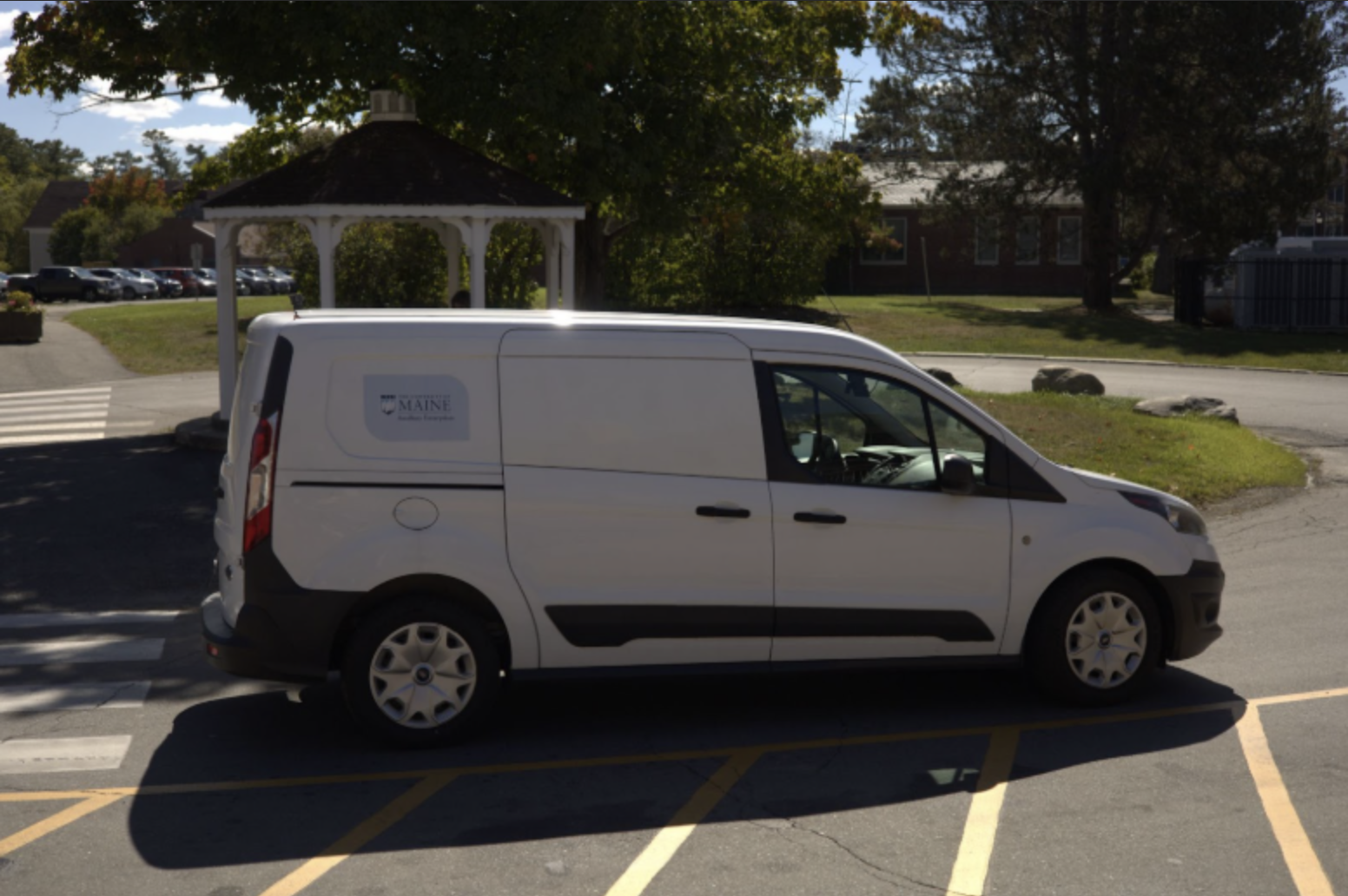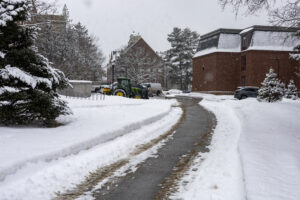Parking has always been a bone of contention between students and staff at the University of Maine, but this semester, if public sentiment is to be believed, the situation has come to a head.
“Skip class, there is no parking today!” read the title of the viral-on-campus post by content creator Barstool Black Bears, posted to Instagram on Sept. 4, followed by a video of a car circling a packed parking lot with at least six others parallel-parked on the grass margin. Other Instagram posts made by many students at the beginning of the year showed rows of parked cars, all of them with tickets clearly visible.
In the wake of such widespread dissatisfaction, with parking being especially scarce for holders of the black Commuter Permits, the Maine Campus decided to reach out for comment to those on both sides of the issue.
Fourth-year biology student, Natalie Sites, expressed a desire to share her experiences with the long arm of parking enforcement. Her complaints about the time she swiftly received a ticket when commuting to work as a student employee last summer, when parking is almost never scarce anywhere, led to her overarching gripe with Parking Services.
“I had to show up on campus at 5:30 a.m. for my job, and I parked in the blue because I didn’t even realize we were going to enforce parking over the summer. It’s like, no one’s really here. So I come back at the end of the day and I have a ticket… and it’s just like, you’re gonna ticket me $50 which is basically what I just made working for you guys. So that was super duper frustrating, and it also just, it all kind of feels like a money grab, like, why are we paying students to ticket over the summer, when we know there’s an abundance of parking everywhere,” said Sites.
At its core, the reason parking penalties exist is to ensure payment of permit fees, reduce the rate of outright safety violations (such as parking in the fire lane or in front of hydrants) and protect the ability of people to park in their designated lots, within a reasonable walk of their final destination, without the worry of being unable to do so because a lazy motorist has willfully ignored the signs and parked in the closest spot of any description.
When certain color lots are filled to the brim, however, necessity replaces laziness as the motive for improper parking. Natalie mentioned hearing of people having to circle the campus for a long time in order to find a Black parking spot and resorting to parking on grass when none could be found. When they were predictably ticketed, and had their appeals denied, they found Parking Services’ justifications less than satisfactory. Large lots like the CCA Lot have long been a reliable if out-of-the-way place to find parking, but this year it is no longer any consolation to hear that one could have parked there instead of an improper spot when it too can now fill completely at peak hours. The other common justification for ticketing during parking crunches — that an individual spot halfway across campus was open at the time of issue — is seen as shoddy in that since tickets are not given instantly, the parking officer can never know whether that lone space was actually open when the student was trying to park.
Natalie reported that Red and Blue parking permit holders are now being told that they can park in Black spots, and this is not the only university decision causing parking-related discontent. Jessica Cassell, a resident of the Campus Family Housing who was also contacted for comment, told us of the university’s plan to convert reserved Family Housing spots into Red student spots, a plan she expressed her intent to oppose at the Sept. 15 Board of Trustees Meeting.
In pursuit of both answers and alternate perspectives, William Bieberstein expressed his opinion in an interview for this story. As the Associate Executive Director for Auxiliary Enterprises, he oversees the whole Parking Services organization and is in the loop regarding the root cause of problems as well as future solutions.
According to Bieberstein, construction projects are one factor affecting parking capacity, but steps are being taken to mitigate the direct and indirect effects of this.
“The university has been so fortunate to have a lot of great construction projects going on, and of course, with that come a lot of contractors and and changes of spaces, including parking spaces, and so that long–term gain is creating a lot of short–term pain for for especially our commuters over near the Alfond arena and the Alfond stadium,” said Bieberstein.
Two years ago, it had been rumored that parking was scarce because contractors were allowed to “park wherever”; if that was ever the case, Bieberstein reassures us that it is no longer, with contractors now being assigned to specific areas carefully chosen to minimize cutting into high-demand student parking.
Entirely new lots are a perennial demand of the student community, but even those cognisant of the cost of laying asphalt may be unaware of the other difficulties involved. Although there are plans for new lots, they haven’t been finalized and completion dates are all still up in the air. Adding parking requires approval from the town, state and Board of Trustees in addition to the university’s green light and funding. The exception to this is the soon-to-open extra parking built with the new soccer complex, which replaces parking spaces permanently lost to the Alfond Ice Arena reconstruction.
When asked about plans to reduce unavoidable improper parking in the short term, the Associate Director revealed that official overflow parking had been laid out on the grass in some cases. He disagreed with assertions that parking enforcement was overzealous, insisting that the student worker-run force was mainly focused on safety rather than revenue generation, allowed to use discretion, and encouraged to issue warnings rather than tickets for non-serious violations in the first few weeks.
If this is all true, then, it is perhaps hard to understand whence the discontent with Parking Services comes. Although there are numerous proposals for short-term parking solutions, with Natalie Sites mentioning merging Black and Blue passes or improving shuttle bus service, perhaps the most impactful change would be for Parking Services to ensure that their full-time and student employee officers are indeed seeing things in perspective at times of extreme parking crunch and always practicing what is apparently preached as official organizational policy.
Finally, it should also be noted that capacity woes are always worse at the beginning of the school year; now three weeks in, the newspaper welcomes student feedback as to whether the struggle for parking improves or remains as frustrating.






